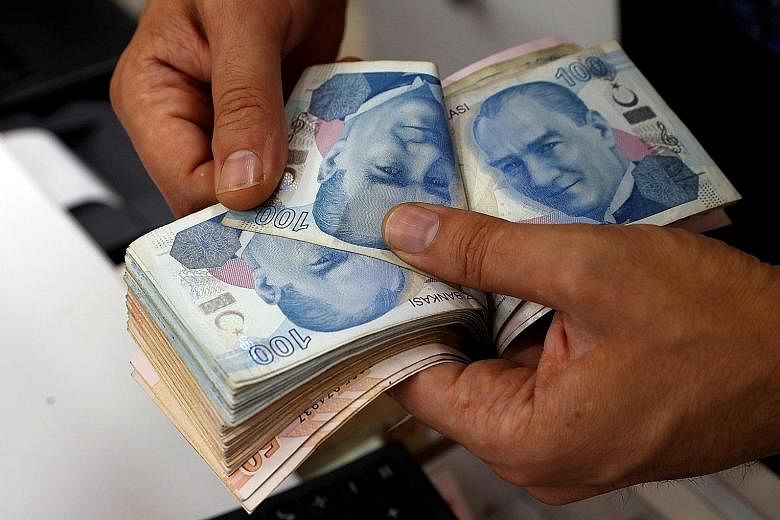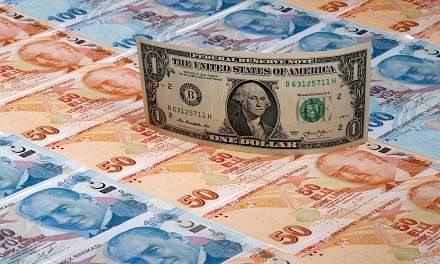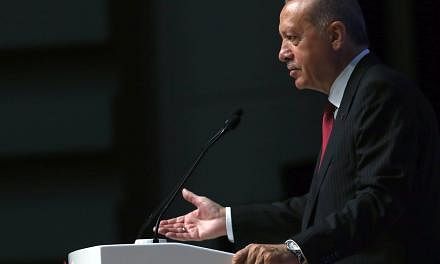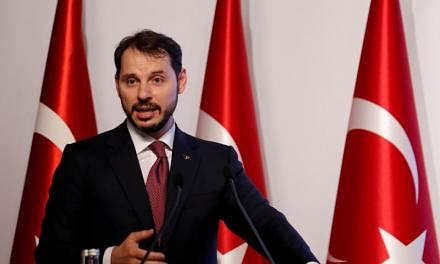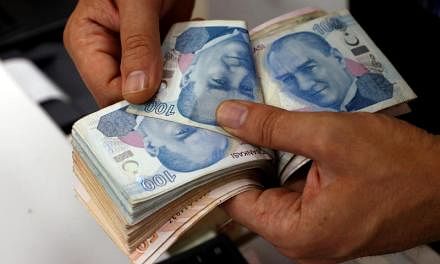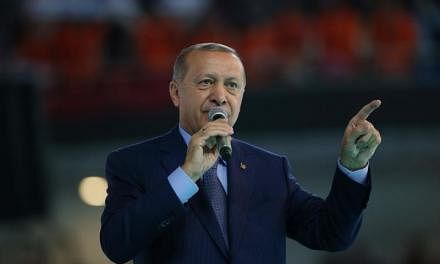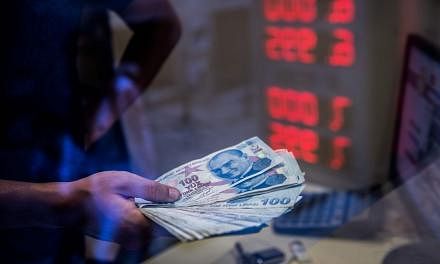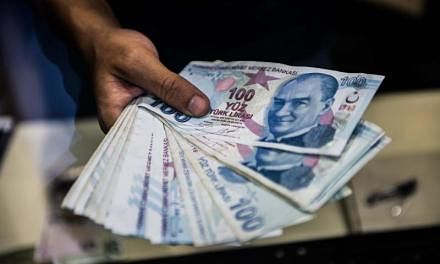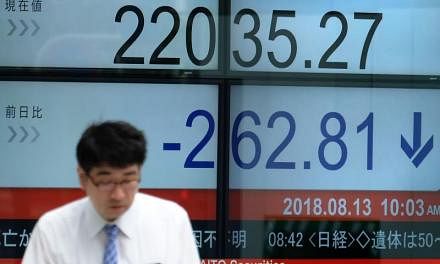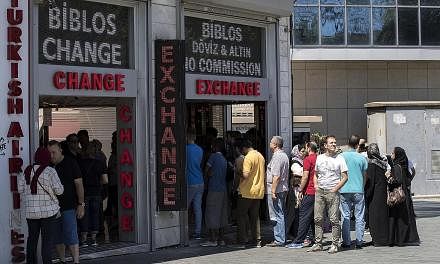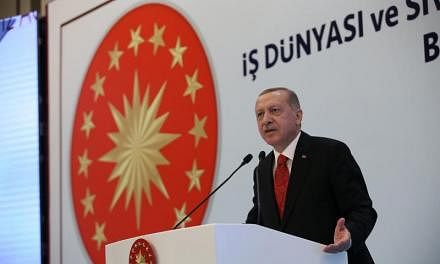Who is the American pastor at the centre of the crisis?
Frustrated with Ankara's continued detention of American Presbyterian minister Andrew Brunson, United States President Donald Trump last Friday authorised the doubling of tariffs on steel and aluminium products from Turkey.
Sanctions have already been in place since earlier this month. They were imposed over Turkey's refusal to release American citizens and diplomatic employees -including Brunson - imprisoned in the aftermath of a coup attempt against President Recep Tayyip Erdogan in 2016.
Brunson, 50, is the oldest of seven children in a deeply religious family. He moved to Turkey in the mid-1990s and settled with his wife Norine and three children in Izmir, the country's third-largest city. His church is among a handful of Christian places of worship in Turkey.
He faces terrorism and spying charges, and could spend the rest of his life in prison if convicted.
He has denied the charges and any links to a network led by US-based Muslim preacher Fethullah Gulen, who is accused by Turkey of orchestrating the failed coup in 2016, and to the outlawed Kurdish PKK militant group.
Why are ties between the US and Turkey strained?
As recently as 2010, then US President Barack Obama declared Turkey to be a "great Muslim democracy" and "a critically important model for other Muslim countries in the region".
But ties have clearly soured. Mr Trump tweeted last Friday: "Our relations with Turkey are not good at this time!"
In recent years, Turkey has grown closer to Russia and Iran, both of which suffer from US sanctions.
These three regional powers have become the main power brokers in the Syria conflict, which entered its eighth year this year. Most parts of the war-torn country are now back under the control of President Bashar al-Assad, condemned by Mr Obama for "slaughtering his own people".
The war in Syria has also exposed rifts between the US and Turkey, both Nato allies.
Turkey has long charged that the US failed to uphold a commitment, initially made by the Obama administration, that its Kurdish allies in the fight against the Islamic State in Iraq and Syria would be kept east of the Euphrates River that runs from Turkey into Syria.
Further deepening mistrust was Turkey's decision in September last year to buy Russia's advanced S-400 air defence system. The move, said US lawmakers and analysts, would compromise the strategic defence interests of the US and its allies.
Will the crisis affect Mr Erdogan's rule?
Why is he resisting raising interest rates? With Mr Erdogan making himself the ultimate decision-maker in Turkey, it will be hard for him to avoid blame, said analysts.
Economists and investors say that while an overall decline in global appetite for emerging markets is hurting Turkey, Mr Erdogan's unorthodox views on economic matters have contributed to the economic policy confusion.
Mr Erdogan has further unnerved investors by resisting interest rate hikes, the crisis antidote prescribed by economists.
Calling interest rates "the mother and father of all evil", he has not made a clear argument for why Turkey's central bank should keep rates low.
Keeping the interest rates low has helped fund his fiscal stimulus programme around the construction industry to generate high growth. But lower interest rates tend to stoke inflation as well. And Turkey is already dealing with inflation running near an annual rate of 16 per cent.
Mr Erdogan, who was prime minister from 2003 to 2014, and has been president since 2014, was re-elected to a new five-year term two months ago.
Since the failed coup in 2016, Mr Erdogan has tightened control and politically manoeuvred domestic laws and policies to expand presidential powers, handing himself unrivalled authority in not just politics, but also the media, judiciary, foreign policy and the economy.
What is next?
Economists are warning that if confidence is not restored quickly, Turkey could lurch into a recession and debt crisis requiring a bailout from the International Monetary Fund (IMF).
The IMF reckons that Turkey has the least adequate level of reserves of the major emerging-market economies, which makes it vulnerable to speculative attacks.
Turkey could seek a cash injection from an outside source, but its options are limited, reported CNN Money.
The Turkish leader may have more luck with Russia, China or Qatar. But any rescue would come at a steep price.
"I could imagine that some countries would give money to Turkey," Mr Carsten Hesse, an economist at Berenberg, told CNN. "They can buy themselves big political influence quite cheaply."
Mr Erdogan would try everything to prevent an IMF bailout, said Mr Hesse.
"It would be a big political loss for him."
